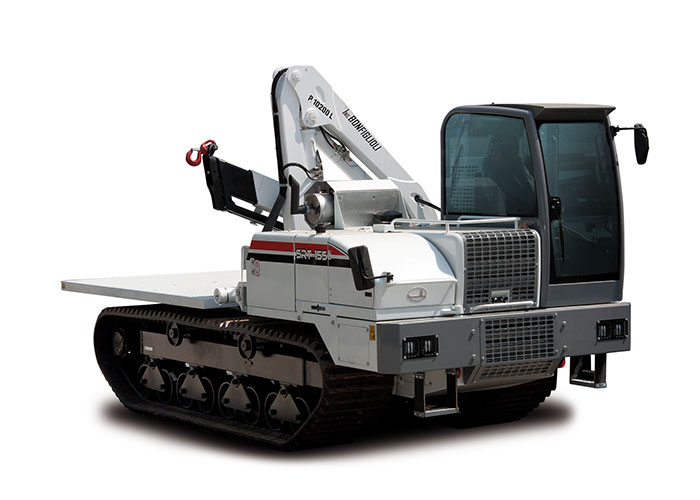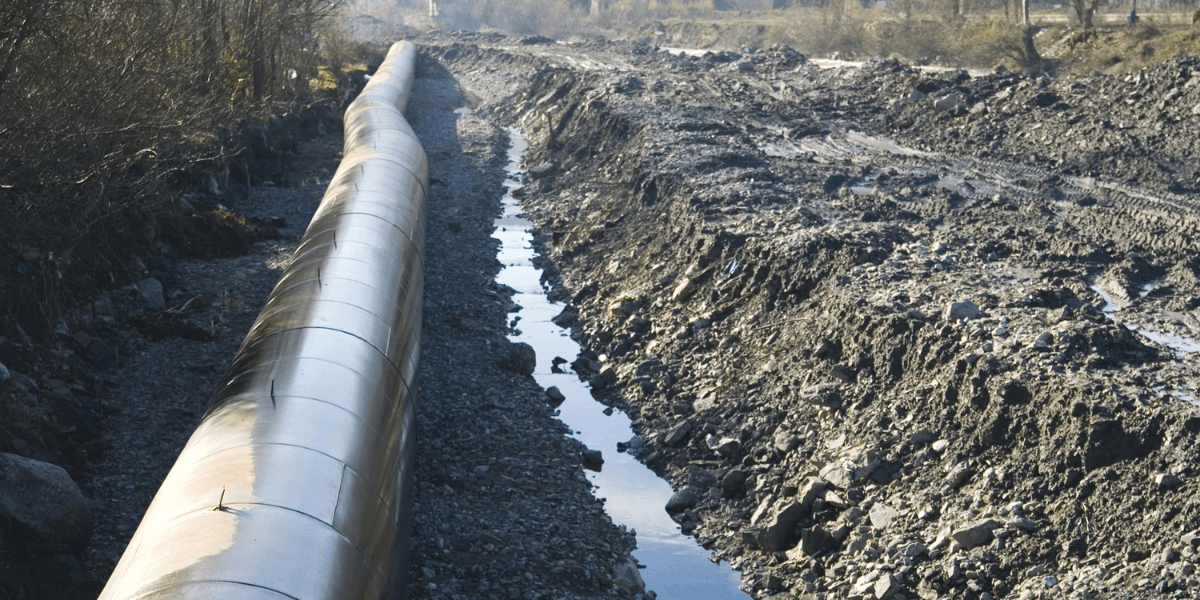A Comprehensive Guide to the Various Sorts Of Oil Field Equipment and Pipeline Equipment Available
The oil and gas market depends greatly on specific equipment for effective removal and transportation. Different kinds of equipment, from piercing rigs to tank, play important duties in this complex process. Each piece of equipment offers unique functions that add to overall operational success. Comprehending these parts is important for any individual associated with the market. As the market develops, so as well do the technologies that support it. What advancements are on the horizon?

Drilling Rigs: The Foundation of Oil Expedition
Drilling rigs function as the essential machinery in the domain name of oil exploration, allowing companies to accessibility hydrocarbon reserves buried deep under the Earth's surface. These rigs are available in various types, consisting of land rigs, offshore rigs, and mobile devices, each designed to operate in specific atmospheres. Equipped with sophisticated modern technology, drilling rigs can permeate geological developments with precision, making certain efficient resource removal. The structural integrity and operational abilities of these rigs are critical, as they need to withstand extreme problems and substantial stress. In addition, the selection of a drilling rig impacts the general job expense and timeline, making it a crucial factor to consider for oil firms looking for to maximize their expedition initiatives and make best use of performance in their procedures.
Pumps: Necessary for Fluid Movement
In the oil extraction procedure, the role of pumps is significant, promoting the movement of fluids throughout different stages of manufacturing. Pumps are vital for transporting petroleum, water, and various other fluids from below ground reservoirs to the surface and afterwards via pipes to refineries. They are available in various kinds, consisting of centrifugal, positive variation, and completely submersible pumps, each serving specific functions based on the liquid qualities and operational needs. Centrifugal pumps are typically used for their performance in high-flow applications, while favorable displacement pumps excel in handling viscous fluids. The choice of pump influences general performance, operational safety and security, and upkeep prices. Correct selection and maintenance of pumps are crucial for optimizing production and reducing downtime in oil field procedures.
Shutoffs: Managing Circulation and Pressure

Shutoffs play an important role in handling the circulation and stress of liquids within oil areas and pipelines. Various sorts of valves serve distinct applications, each developed to meet details features basic for reliable operation - Superior Rentals midland. Comprehending the attributes and uses of these valves is vital for enhancing system performance and safety
Kinds of Valves
Important parts in oil field procedures, shutoffs play a critical duty in regulating the flow and pressure of fluids within pipes and tools. Different sorts of shutoffs are made use of to satisfy the diverse needs of oil and gas manufacturing. Usual types include gateway shutoffs, which supply a straight-line flow and very little pressure drop; world shutoffs, recognized for their strangling capacities; and round shutoffs, acknowledged for their quick on/off control. Furthermore, check valves protect against backflow, while butterfly valves supply a light-weight service for regulating circulation. Each valve kind is created with particular products and setups to withstand the harsh problems typically found in oil areas, making sure reliability and performance in operations. Recognizing these types is critical for reliable system monitoring.
Valve Applications and Features
While different kinds of valves serve unique functions, their key applications revolve around regulating circulation and pressure within oil and gas systems. Shutoffs such as gateway, world, and ball valves regulate fluid motion, ensuring peak performance and security. Gate shutoffs are typically made use of for on/off control, supplying minimal flow resistance. Globe valves, on the various other hand, offer precise flow law, making them suitable for throttling applications. Round valves are favored for their quick procedure and limited sealing abilities. On top of that, stress safety valve are crucial for protecting against system overpressure, securing devices integrity. Generally, the appropriate choice and application of valves enhance operational effectiveness, making sure the trusted transport of oil and gas through pipelines and processing centers.
Compressors: Enhancing Gas Transport
Compressors play a critical function in the effective transport of natural gas, guaranteeing that it relocates smoothly through pipelines over lengthy ranges. These gadgets increase the pressure of all-natural gas, permitting it to get over rubbing and altitude modifications within the pipeline system. In addition, compressors facilitate the harmonizing of supply and need, accommodating changes in intake and manufacturing prices. Different types of compressors are employed in the sector, consisting of centrifugal, reciprocating, and rotating screw compressors, each offering unique advantages based on the operational requirements. Normal upkeep of these compressors is crucial to take full advantage of effectiveness and lessen downtime, eventually adding to a trusted gas transport network. Their important function underscores the importance of compressors in the total oil and gas facilities.
Storage Tanks: Safe and Effective Fluid Monitoring
Reliable transport of natural gas counts on numerous supporting systems, among which is the appropriate management of tank. These tanks play a crucial function in safely including fluids, making certain that operational performance is maintained while decreasing environmental dangers. Built from durable products, they are made to stand up to high stress and corrosive elements. Properly sized and purposefully situated, storage containers assist in the smooth flow of natural gas and various other fluids, preventing traffic jams in supply chains. Regular upkeep and monitoring are crucial to discover leakages or structural problems, advertising safety and compliance with governing standards. Eventually, the effective administration of tank is critical for the general integrity and integrity of the oil and gas market's liquid handling systems.
Pipeline Equipments: Facilities for Transport
Pipeline systems function as the foundation of the oil and gas sector, assisting in the reliable transport of hydrocarbons over substantial distances. These systems are composed of numerous elements, consisting of pipelines, shutoffs, pumps, and compressors, all meticulously designed to ensure smooth circulation. The products made use of in pipeline construction, commonly steel or high-density polyethylene, are selected for toughness and resistance to deterioration. Pipeline networks can span across land and water, connecting production sites to refineries and circulation centers. Additionally, advanced innovation enables real-time tracking of circulation prices and pressure levels, improving functional performance. The strategic placement of these pipes decreases ecological impact while making best use of resource access, thereby playing a necessary duty in conference power needs globally.
Safety And Security Equipment: Making Certain Employee and Environmental Management
The operation of pipeline systems, while important for energy transportation, additionally provides substantial safety and security challenges for workers and the environment. Safety equipment plays a substantial role in mitigating these risks. Personal safety tools (PPE) such as safety helmets, handwear covers, and non-slip shoes safeguards employees from physical dangers. Furthermore, gas detection systems keep track of for leaks, making sure that dangerous compounds do not position a risk to personnel or the surrounding ecological community. Emergency closure systems are critical for swiftly stopping operations throughout a dilemma, protecting against prospective disasters. Spill containment products, including absorbents and obstacles, are fundamental for decreasing ecological effect. In general, investing in all-encompassing safety and security devices is vital for preserving operational honesty and safeguarding both workers and the atmosphere in the oil and gas industry.

Frequently Asked Concerns
Just how Do I Choose the Right Oil Field Equipment for My Project?
Selecting the ideal oil area tools involves assessing job requirements, spending plan restraints, and operational requirements. Consider factors such as tools dependability, compatibility with existing systems, and the provider's credibility to assure peak efficiency and security.
What Are the Maintenance Requirements for Oil Field Equipment?
Upkeep demands for oil field devices consist of routine evaluations, lubrication, and prompt repair services. Operators ought to also comply with maker guidelines, display performance metrics, and guarantee conformity with safety regulations to boost durability and effectiveness.

How Can I Guarantee Compliance With Environmental Laws?
To ensure compliance with environmental policies, business need to perform routine audits, carry out ideal techniques, purchase training, preserve appropriate paperwork, and stay updated on regulations (Superior Rentals Contact). Partnership with ecological firms can additionally enhance adherence more info to laws
What Is the Average Life-span of Pipeline Equipment?
The typical life-span of pipeline tools commonly ranges from 20 to 50 years, depending upon aspects such as worldly high quality, environmental conditions, and upkeep methods. Normal assessments can greatly influence durability and functional performance.
Just how Do I Safely Move Oil Field Equipment to Remote Locations?
Transferring oil field tools to remote places requires mindful planning, consisting of path analysis, safeguarding authorizations, using ideal automobiles, and ensuring safety and security procedures are adhered to. Correct training and interaction amongst teams are necessary for effective transportation.